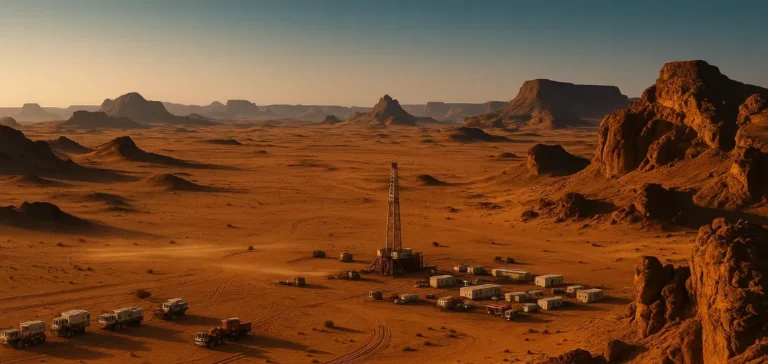TotalEnergies, in partnership with QatarEnergy, has obtained the Ahara exploration licence following the “Algeria Bid Round 2024” tender organised by the Agence Nationale pour la Valorisation des Ressources en Hydrocarbures (ALNAFT). This is the first tender conducted under the new hydrocarbons law n° 19-13. The Ahara area covers approximately 14,900 square kilometres and is located at the junction of the Berkine and Illizi basins, known for their resource potential.
A tripartite consortium for the development of Ahara
According to the distribution, the Algerian national company SONATRACH retains a majority stake of 51%, in accordance with current legislation. TotalEnergies and QatarEnergy each hold 24.5% of the project and will work closely together during the exploration and appraisal phases. The French group will act as operator during these initial stages.
The launch of this project is part of the strategy of international players seeking to strengthen their presence in hydrocarbon-rich areas of North Africa. The granting of this licence comes as Algeria continues its policy of enhancing its resources, particularly through the implementation of the hydrocarbons law designed to attract investment and clarify the sector’s rules.
Prospects for the hydrocarbons sector in Algeria
The partnership with TotalEnergies and QatarEnergy confirms SONATRACH’s intention to collaborate with major companies possessing technical and financial expertise. Patrick Pouyanné, Chairman and Chief Executive Officer of TotalEnergies, stated that this award opens a new chapter in cooperation between the three companies in Algerian exploration, according to Bloomberg reported on 18 June.
The next steps include preparation of the exploration programme and assessment of the area’s potential. The Ahara project adds to other similar initiatives aimed at supporting national production and securing regional hydrocarbon supply. The implementation of this licence highlights the continued interest of major companies in the Algerian energy sector.






















